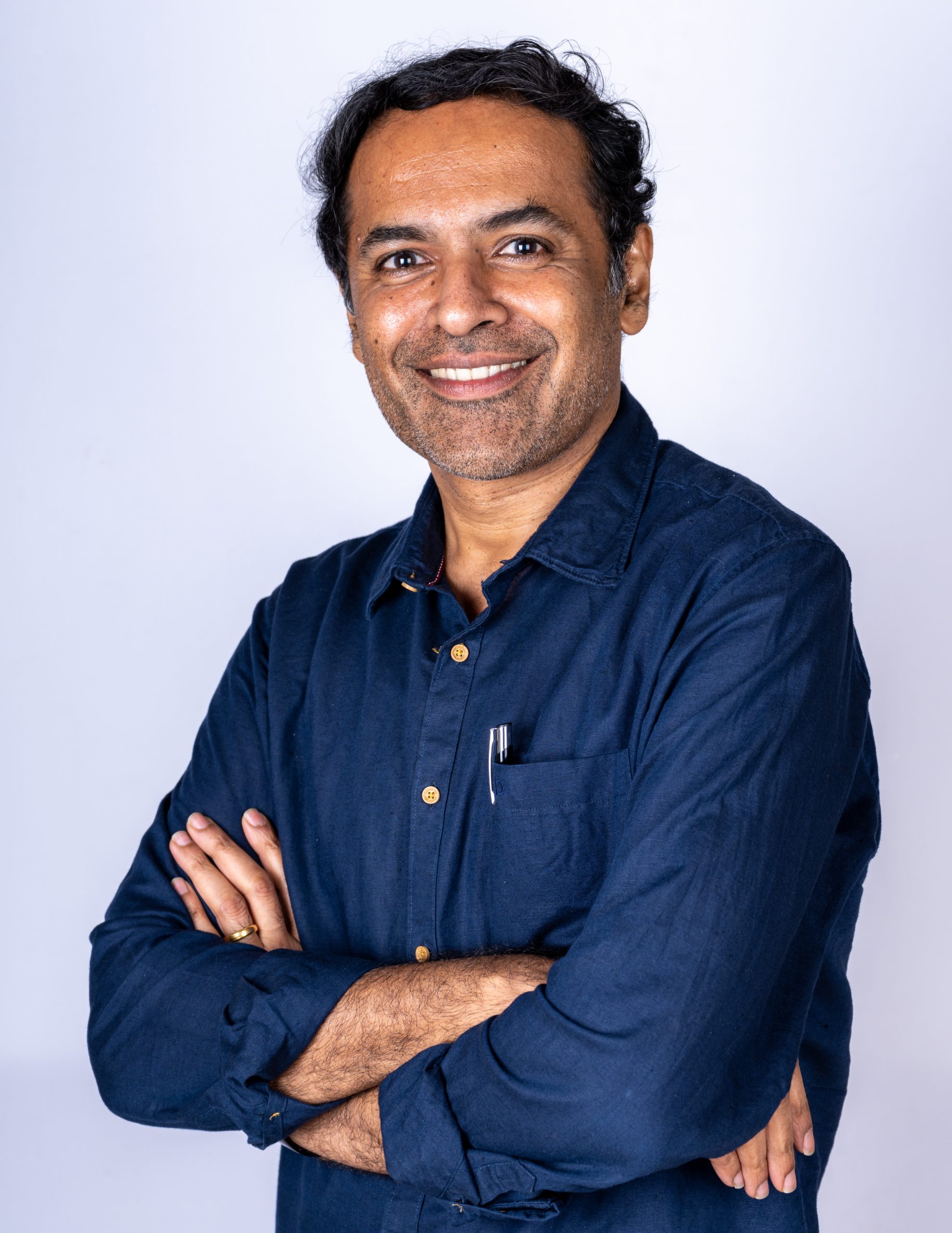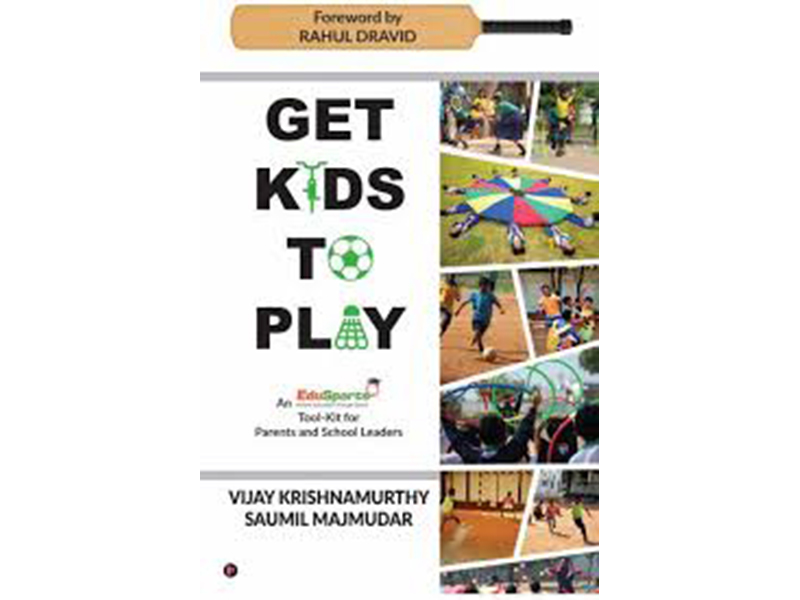
Vijay Krishnamurthy
Saumil Majmudar
Saumil Majmudar, an alum of IIT-Bombay and IIM-Bangalore and co-founder and CEO of Sportz Village, one of India’s pioneer sports education companies which runs its EduSports programme in 600 schools countrywide, and Vijay Krishnamurthy, an alumnus of Bangalore University and New Jersey Institute of Technology, USA, sports research scholar and executive coach (ICF) with 25 years of global experience in tech design, sports entrepreneurship and management research, recently co-authored Get Kids to Play (2024). This insightful book educates parents and school leaders about the importance of physical activity and ways and means to motivate children to play. Excerpt:
Rohan threw his school bag on his bed, freshened up, grabbed an apple, lifted his cricket kit, and stormed out in a hurry. This took a total of 10 minutes while his Mom parked the car and was catching up with the friend next door. “Keep drinking water, play well, and return home as soon as the practice…….” The elevator shut by the time she could complete her instruction. This was a daily drill for Rohan, and he shook his head while battling a series of emotions.Rohan says, “My parents are great, but why do they always tell me what to do? It stresses me out. Why does Mom keep a tab on every minute of mine? She is overscheduling me, though I know she wants me to focus on my studies, too. It is like I’m never quite good enough; I can’t fully please my parents, either in sports or studies.”
Rohan’s Mom has her own thoughts: “By the time he is home, he will again be too tired to finish his homework. What if he doesn’t turn out to be a good sportsperson and lags behind in his studies, too? I hope he understands one day that I am doing this for his own good!”
Many research findings highlight that children combining sports and academics are better focused, as discipline, concentration, and time management learned through sports are useful. A research study conducted on Slovak athletes strived to gain an understanding of the athletes’ attitudes towards education as well as perceived difficulties and supporting elements in pursuing dual careers. The athletes experienced dual careers as manageable as long as they were assisted, were provided with flexible arrangements, and were supported by parents and peers (Geraniosova et al., 2014).
Giving Physical Education and Sports the requisite weightage in the school curriculum is a challenging task, and the stakeholders (school principals, parents, etc) take time to accept sports at par with academics for their children. Often, having students involved in extra-curricular activities like sports can pose a catch-22 situation as the benefits of sports for students come with the demand for their time, thus sacrificing the time meant for “academic rituals.” Yet striking a balance between sports and academics is essential for the modern student, and our EduSports programs, coaches, teachers, and parents can play a pivotal role in providing the required support.
The balancing act
By introducing and implementing time-saving tips and their staunch support, parents, coaches, and teachers can aid in finding the balance, not only in school but on the playing field and in life.
Help them to prioritize
As with everything else in life, help your child to first make a list of her priorities. If her interest in sports is as strong as her interest in academics, then establish that she would have to give up on watching her favorite TV program and other things to have ample time to complete her homework, and her academics do not take a backseat. For example, if there’s a test tomorrow and this afternoon’s team practice isn’t critical, that extra time can be utilized to study. However, if there’s an important athletic event the next day, studying can be postponed to the following night.
Help them in planning
Guide your child to get a grip on his time table or course schedule and help him answer the questions as he plans: How many hours will you need to finish your task?
Can you catch up with your studies during breaks or while traveling?
Will you have enough free time to participate in other activities?
Some helpful tools like a hard copy planner or time management app help him map out his sports and study schedule. Communicate and engage with them: While maintaining the importance of sports, help your child to develop positive attitudes toward school and learning. Talking and listening play significant roles in children’s success in school and sports. Allow them to believe that they have scope to commit mistakes and praise them when they deserve it; it will keep them motivated. Help your child answer questions that invariably bother them:
How much is too much? Have I set high standards of achievement, or am I setting unreasonable expectations? What should I enroll for and still balance academics and extra-curricular activities?
Watch out for the warning signs
Sometimes, balancing sports and academics becomes too difficult for children, even if they are willing to stretch themselves. Encourage them to take breaks from studies and sports, as it is also vital for children to have unstructured time to be kids. Be alert to save children from burnout if you come across signs such as a sudden drop in grades, lack of motivation or poor attitude in the sport. Making excuses to skip practice or school. Physical illness when it’s time to participate in the sport. At their core, sports are fun for children, but if they stop having fun, it’s time to re-evaluate whether they should consider a new sport or stop altogether.
Striking the right balance between academics and sports can be a thorn in the flesh and requires a team approach. With the right help, guidance, and communication from all parties involved, children can benefit from playing a sport while still enjoying a quality academic experience by prioritizing their interests and steering their lives in the right direction.
If there were to be a competition between sports and academics, sports would help one acquire organizational skills worthy of any professional manager, while academics would help shape the fundamentals of one’s lifelong knowledge base.
Balancing sports and academics is difficult, but it is possible. And it is worth it! After all, one should look back and say, “I can’t believe I did that,” instead of saying, “I wish my life had interesting stories to tell.
